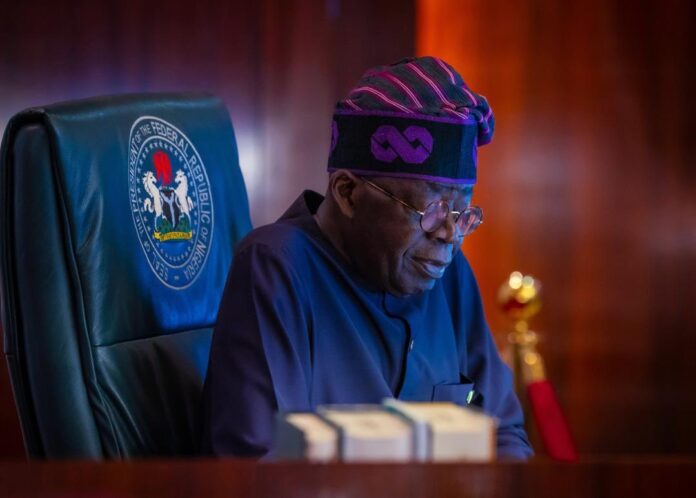Nigeria’s President, Bola Tinubu, has removed the five per cent excise tax on telecommunications services from the new tax laws, according to Dr. Aminu Maida, Executive Vice-Chairman of the Nigerian Communications Commission. This move is anticipated to alleviate subscribers’ financial burden.
Maida clarified that the levy, which had initially been suspended, had now been lifted entirely during an interactive session with reporters in Abuja on Tuesday.
“The excise duty was five per cent or so, that is no longer there,” he said. “Before it was suspended, but now the President has been magnanimous to remove it entirely. I was in a room when it was raised, and he said, No, we cannot put this on Nigerians. I was very pleased when the bills came out, and we saw that his words were followed through.”
The five per cent excise duty is part of a broader tax reform initiative under a bill titled “A Bill for an Act to Repeal Certain Acts on Taxation and Consolidate the Legal Frameworks relating to Taxation and Enact the Nigeria Tax Act to Provide for Taxation of Income, Transactions, and Instruments, and Related Matters”.
Opposition to the new tax law
The proposed tax has encountered significant opposition since its introduction in 2022, during the administration of former President Muhammadu Buhari.
Due to the public outcry, President Bola Tinubu suspended it in July 2023, citing worries about how it would affect the economy and consumers.
Maida stated that eliminating the duty would relieve subscribers’ strain while fostering the industry’s broader expansion, as Nigeria’s telecom sector is essential to economic activity and digital inclusion.
He mentioned that the commission was working on reforms based on improved consumer protection, accountability, and transparency.
He clarified that the regulator was now using behavioural economics to supplement traditional rule-based oversight, particularly by disclosing information that would help operators and consumers make better decisions.
According to him, one of the projects is a public network performance map that will be made available in September and will show independent data on latency, download speeds, and other quality metrics.
He added that “there will also be a quarterly network performance report based on user data. According to him, this “extends accountability beyond mobile operators to also include infrastructure providers who play a critical role in reliability.”
According to Maida, the industry will be strengthened through corporate governance.
“Transparent, well-governed companies attract investment and perform better,” he said, adding that the goal was to lay the foundation for a Nigerian telecom company that is wholly owned, well-run and globally competitive.
Reforms in the telecom sector
He cited the completion of the NIN-SIM audit, the resolution of USSD debt disputes, the switch to end-user billing, and the establishment of a Major Incident Reporting Portal as examples of reforms demonstrating progress.
He emphasised that the Telecom Policy 2000, which aimed to introduce competition and break up monopolies, had accomplished its goal but now needed to be revised.
“In the early 2000s, it was about voice and text. Today, it is about internet connectivity and the emerging technologies that depend on it – artificial intelligence, internet of things, remote sensors, and augmented reality. The policy did not fail, but we must evolve for new realities,” he said.
He maintained that competition was still a significant factor in keeping call tariffs low, pointing out that, despite recent changes, the most expensive call rate available today is only N18 or N19 per minute, as opposed to N50 per minute in the early 2000s.
New operational framework to standardise recharge procedures
Regarding consumer concerns regarding unsuccessful electronic top-ups, Maida stated that a joint NCC-CBN task force had developed a new operational framework to standardise recharge procedures.
Additionally, he said that in response to complaints of data depletion, Tier-1 audit firms were hired to investigate operators’ billing systems.
The results, he said, revealed no systematic manipulation of customer data. Instead, complicated tariff structures, device settings, and background app usage were some factors that led to consumer discontent.
“We are not trying to punish anyone,” he said. “We want the industry to grow, so consumers are happier, operators perform better, and the government benefits from a broader tax base.”
How to manage data
Freda Bruce-Bennett, Director of the NCC’s Consumer Affairs Bureau, also spoke at the event and offered helpful advice on how Nigerians can better manage their data, including turning off social media autoplay, limiting background data, deleting apps that aren’t being used, turning on data-saving modes, and using Wi-Fi whenever possible.
According to her, there are 172 million active phone subscribers in Nigeria, 105 million of whom use broadband, and 141 million use the internet, accounting for 81.9 per cent of the total.
Nnenna Ukoha, the Director of Public Affairs at the NCC, emphasised the importance of the media in informing the public about regulatory initiatives.
“You are the ones that transmit and convey our transformative policies to the people of Nigeria,” she said. “Therefore, I invite you to be open and talk to us freely. We are here to collaborate with you.”
















